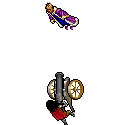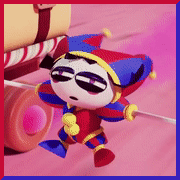|
Ornamented Death posted:Odd. I can only speak to what goes on around here, because goons are the only subset of fans I can remotely tolerate, but it's more that Dresden fans fight to differentiate between urban fantasy, which includes Dresden, and paranormal romance, which would be your Sookie Stackhouses and Anita Blakes. i think goons end up calling the ones they "approve" of urban fantasy and ones they find icky paranormal romance. A lot of people consider Anita Blake and Charlene Harris to be urban fantasy. It ends up being a really wishy washy difference.
|
|
|
|

|
| # ? May 26, 2024 11:58 |
|
Paragon8 posted:i think goons end up calling the ones they "approve" of urban fantasy and ones they find icky paranormal romance. A lot of people consider Anita Blake and Charlene Harris to be urban fantasy. It ends up being a really wishy washy difference. That's just Johnny come lately trying to misappropriate a term in use before they arrived. First Anita Blake was published in 1993 before those people learned to read.
|
|
|
|
Hughlander posted:That's just Johnny come lately trying to misappropriate a term in use before they arrived. First Anita Blake was published in 1993 before those people learned to read. oh yeah the hyper specificity of genres is definitely a new largely marketing driven thing. It just ends up feeding into the entitlement of fantasy readers and encouraging people to stay in walled genre gardens. Again the caveat is reading is cool and good and we shouldn't judge people for it. Just you get stuff like people thinking NotW is the best thing because they've only read in the fantasy garden and next to a dozen D&D novelisations and Terry Goodkind, Rothfuss seems rad and good.
|
|
|
|
Paragon8 posted:readers seem to want to read the same book again and again. Isn't that pretty much the definition of genre fiction?
|
|
|
|
Flattened Spoon posted:Isn't that pretty much the definition of genre fiction? Lord of the Rings and A Song of Ice and Fire are both genre fiction but they are radically different. It's possible for books to be in the same genre and not be the same book.
|
|
|
|
Wanting similarity is also different from wanting the same thing. Somebody who likes burgers doesn't eat at McDonalds every day because a burger is a burger, he samples all sorts of different places with different ingredients and preparation styles. A food critic who only ever went to one restaurant would be laughed out of the business.
|
|
|
|
Oh Snapple! posted:Aren't you the dude who basically raged out of the series at book 3 because of the utter ridiculousness of a wolf god inhabiting a wolf Malazan was so tedious that I could barely finish the sample of the first book and after hearing about how it's basically a D&D campaign-turned-book, followed by a spiderweb of book chronology I decided I wasn't nearly as spergy as that series demands. Grenrow posted:I see what you mean, but I am still a little confused about why it got so much mainstream acclaim and attention. Not that the bulk of the fantasy genre is amazing literature or anything, but I just finished reading Abercrombie's First Law trilogy and found it to be really engaging fantasy pulp. Compared to Kingkiller, it clips along at a good pace, has memorable characters, and some sense of an overall thematic purpose to the story. If I didn't know already how popular Kingkiller Chronicles is, I would have expected it to get buried by some series similar to the First Law. For the same reason Stephanie Meyer's Twilight series got massively popular while the tens of thousands of similar low-grade romance novels go unheard of. A shitload of luck. 50 Shades at least had the benefit of being a fairly popular(I think?) Twilight fanfic whose author was then smart enough to change names and release it as its own thing. Though it's still a hosed up series glorifying abuse. The idea his two lovely books and the dumb Auri novella makes him more popular than people like Robin Hobb is criminal. WMF's is as bad as the beginning of the Liveship trilogy but WMF only gets worse while the Liveship books get better. anilEhilated posted:The main thing I'm getting from the discussion is that NotW is supposed to be "on par" for the genre which somehow means it's not a bad book? Not sure; I read a fair bit of fantasy and still wouldn't touch Rothfuss with a ten foot pole after wherever the gently caress I gave up on WMF. This is true when you remember that there's tens of thousands of truly awful fantasy out there (looking at you, Morgan Rice and your Sorcerer's Ring series) so the 'average' is actually not very good. Even Daniel Arson, whose series all seem to have the same "I am what I hate" main villain, writes better stuff than WMF. I've gotten books for $1, or free, off iBooks that were better than Kingkiller. Cycle of Arwen was something like $3 so I bought it on a whim and while it had a lot of flaws it still offered more than NotW or WMF do, while taking up less pages to do so.
|
|
|
|
This one's a doozy, but try to stick through! LET’S READ THE KINGKILLER CHRONICLE CRITICALLY Part 31: “This sparked a chorus of familiar complaints...” In Chapter 86, “The Fire Itself,” Kvothe’s expulsion is immediately overturned and he is raised in fake-language rank. quote:“All in favor of suspending expulsion?” I looked up again in time to see Elodin’s hand. Elxa Dal’s. Kilvin, Lorren, the Chancellor. All hands save Hemme’s. I almost laughed out of shock and sheer disbelief. Elodin gave me his boyish smile again. If this were written in any competent manner, Hemme would have voted in favour of repealing the expulsion. He’d prefer for Kvothe to be watched over by an academic institution instead of letting a powerful wizard go loose. This is not written in any competent manner. Elodin explains the nature of “naming” to Kvothe. quote:I decided to take a different tack. “How did I call the wind if I didn’t know how?” quote:Elodin pointed down the street. “What color is that boy’s shirt?” This is a summary of the philosophy of The Name of the Wind, and the closest thing it has to a central theme. Understanding is power and privilege. As I’ve mentioned already, the world of Kingkiller is divided into those “in the know” and those outside. To truly understand something is to control it. There are masters and students, and storytellers and audiences. The problem with this philosophy is that it’s elitist and anti-democratic. It’s not hard to miss how The Kingkiller Chronicle is only interested in few individuals, and not in communities and groups. The only time a mass of people matters in the narrative, it’s as an audience. Otherwise they mill about the edges of Kvothe’s awareness. There is hardly any conception of an individual as part of a greater whole. Kvothe belonged to a troupe, but aside from three characters with voices, they were sketches defined by passing benevolence to the narrator. Kvothe is a student at a University, but the other students again only figure as an audience for him, except for one time his bunkmates resented him for his quick advancement. Rothfuss has not missed this, and tries to alleviate it by introducing an occasional insightful prole or other into the narrative who displays great practical wisdom. We’ll even see a prole “graduate” from his ignorance by revealing his intelligence. But this only ends up confirming this strange structure rather than defying it. And it hardly functions a theme. The narrative is built around understanding a person, but the narrative is there is no real truth about people, life, love, communities, or what you have. If you recall Kvothe’s ultimate self-aggrandizing speech that started the main story, Kvothe is not interesting because of what he knows, but because of who he is and what he has done. That’s the ultimate thematic statement of the story, which is to say that there is no theme except for Kvothe’s exceptionality. In other words, there is no theme. I may sound like I’m demanding too much from a novel about an immature wish-fulfilment figure, but after so many hundreds of pages I’d be happy with anything. I am Rothfuss’s number one fan, after all. Yet now we go back to Kvothe’s moon-fey, Auri. Chapter 87, “Winter,” sees Kvothe intent on visiting the underground structures of the University where Auri lives. She guides him in, and there is some interesting imagery until Kvothe is interrupted. quote:I hesitated, unsure as to how she would respond to my request. “I was wondering, Auri. Would you mind showing me the Underthing?” Auri as a character is something I actually hesitate to discuss, because I’m afraid of throwing away any pretence of critical approach and will resort to terms like “Manic Pixie Dream Girl”. So I try to take a simple approach. Auri is bad character. She’s a vehicle for faux whimsy and male patronization. The reason her nonsense phrases and Kvothe’s patronization is ultimately bad is the the same problem as with Denna. As characters, they do nothing. When you reduce them to their basic character, they are women who talk a lot, and whom Kvothe cares for. You may think that this is enough for a substantial character, but it’s really not. There is no real character arc. Kvothe knows her slightly better than before. Denna doesn not actually need to be involved in the finale, except to externalize Kvothe’s quest (in other words, simply someone to talk with him). Her most important characterization is given by another character, and does not involve her. In addition, she ties very poorly into these elements of the story, like magic or the University. Now there are hints that her patron is actually one of the Chandrian, but there is no reason to delay this revelation. This whole trilogy can be told in just one book with some judicious editing and rewriting. quote:
The text above is interrupted mid-sentence by a chapter break, in another case of inexpressibly bad chaptering. In Chapter 87, “Interlude-Looking,” it turns out that customers arriving at the inn have interrupted Kvothe’s story. quote:The sound of heavy boots on the wooden landing startled the men sitting in the Waystone Inn. Kvothe bolted to his feet midsentence and was halfway to the bar before the front door opened and the first of the Felling night crowd made their way inside. It’s a very basic and fundamental problem in the novel’s structure: it doesn’t take advantage of the fact that’s it’s nominally an oral narrative. Baudolino does, to a degree, as there is no rigid separation between the main narrative and the frame story as in The Kingkiller Chronicle. The chaptering creates a mental pause that forces the reader to juggle two parallel narratives. But the rigid separation is necessary, because Rothfuss insists on narrating minutiae and unnecessary dialogue Also lol at that Rothfussian Attribute: “The exchange had a well-worn feel, comfortable as old shoes.” It distracts the uncritical reader from how nonsensical it is. In this case old shoes are something that are no longer comfortable or something that one no longer notices. Also, meeting acquaintances is not like wearing comfortable shoes. Well I found it funny, but I am easily amused. The customers, with Chronicler, discuss the legends of Kvothe. It’s more aggrandizement for Kvothe, who is the absolute centre of the universe because he is the only famous person in the world of these novels. The only other figures of stories lived long ago “in the mists of flashback”. The world of Kingkiller really is that static. There is no real action in The Name of the Wind that doesn’t involve Kvothe, no social, political, or economic change, no movements, no conflicts save for allusions in the framing story. This ties into how communities and masses play hardly any role in the story. This is the foremost reason why the books cannot be read as a satire of narcissism: because their form and structure supports that same narcissism. Even Benvenuto Cellini recognises that there is a world that functions outside of himself and his actions, and he’s a narcissistic murderer. quote:Cob took a quick drink and continued. “So one day Kvothe was out running errands for the widow, when a fellow pulls out a knife and tells Kvothe if he doesn’t hand over the widow’s money, he’ll spill Kvothe’s guts all over the street.” Cob pointed an imaginary knife at the boy and gave him a menacing look. “Now you’ve got to remember, this is back when Kvothe was just a pup. He ain’t got no sword, and even if he did, he ain’t learned to fight proper from the Adem yet.” This is the novel’s appeal. There is no danger, duty, or obligation that weighs too heavily on the narrative, as noted by “magpiewhotypes”. Kvothe is mostly free to do what he wants. He has no duties or obligations. The Chandrian come and go. The only real exception is stopping the dragon. Honestly, it was a heroic thing to do, even if the book ends up undermining it. Fans love this static, safe world, because it reassures them. It’s not hard to read it as affirming the superiority of white, male, middle-class existence. Kvothe’s financial instability is also part of this: what Rothfuss actually describes is the insecurity of modern American middle-class life, while also appealing to white middle-class vanity. It’s why Kvothe’s ethnic heritage is simply a badge worn or taken off at will. But that’s not to say that there is no danger in the narrative. While the company is busy at eating and telling stories, a mercenary stumbles into the bar, one of the men who robbed Chronicler many chapters earlier. This chapter veers into sci-fi horror as the mercenary turns out to be possessed by an alien being. He brawls with Kvothe and company, until one of the customers bludgeons him to death with a bar of iron. It’s also revealed that Kvothe cannot use magic anymore, and Bast intimidates Chronicler not to ask about this. The obvious question is why such basic characterisation and plot points are being introduced when the book is nearing its end. The obvious answer is that this story is supposed to be a trilogy. quote:“Welcome to the Waystone,” the innkeeper called out from behind the bar. “What can we do for you?” quote:The man’s smile fell away. His eyes hardened, grew angry. “Te-tauren sciyrloet? Amauen.” The fight is inoffensive for genre fiction, but it’s rather naked application of Chandler’s famous advice about men with guns. quote:With an almost casual motion, Kvothe grabbed a dark bottle from the counter and flung it across the bar. It struck the mercenary in the mouth and shattered. The air filled with the sharp tang of elderberry, dousing the man’s still-grinning head and shoulders. One of the farmers is dead, and there is extended dialogue about what’s happened. You can observe the hierarchy Rothfuss establishes. There are those who know and those who don’t matter: quote:The smith’s prentice gestured behind the bar. “I know you got a big oak drunk-thumper under the bar there. And, well…” His eyes flickered upward to the sword hanging menacingly behind the bar. “There’s only one reason I can think you’d grab a bottle instead of that. You weren’t trying to knock that fellow’s teeth in. You were gonta light him on fire. ’Cept you didn’t have any matches, and there weren’t any candles closeby.” Also, just enjoy number of attributes and attributions here: quote:
As always, it comes back to Kvothe. quote:Kvothe nodded and stepped through the doorway behind the bar. As soon as he was out of sight, Bast leaned close to Chronicler’s ear. “Don’t ask him about it,” he hissed urgently. “Don’t mention it at all.” Also, here's something that is all really from Chapter 88. Really, you have to forgive for something as petty as this, but I've added nothing: quote:They nodded attentively. quote:The others nodded in agreement. quote:Chronicler nodded and quickly shuffled the paper, pens, and ink into his flat leather satchel. quote:Cob gave a conciliatory nod. quote:Cob nodded. quote:Cob nodded. quote:Cob nodded. quote:Kvothe nodded seriously. quote:Aaron’s eyes slid back to the cup he held in his hands, nodding to himself. quote:Aaron looked up to meet Kvothe’s eye, then nodded and looked down into his mug again. quote:Kvothe nodded. quote:Kvothe nodded a hint of an apology. quote:Bast nodded. quote:Chronicler nodded, rolling it around. quote:Kvothe nodded. quote:Kvothe nodded and stepped through the doorway behind the bar. BravestOfTheLamps fucked around with this message at 22:53 on Jul 31, 2017 |
|
|
|
I popped into the ASOIAF thread, read an extract from a R Scott Bakker novel, I think I like Rothfuss now.
|
|
|
|
BravestOfTheLamps posted:I popped into the ASOIAF thread, read an extract from a R Scott Bakker novel, I think I like Rothfuss now. Was it the black demon semen?
|
|
|
|
BravestOfTheLamps posted:I popped into the ASOIAF thread, read an extract from a R Scott Bakker novel, I think I like Rothfuss now. Bakker's non-sex stuff is great, though.
|
|
|
|
The classic defence of visual novels. And of Rothfuss, if any fan had the balls to admit that he' s bad at eroticism. e: A familiar pattern: quote:Aengelas roared. BravestOfTheLamps fucked around with this message at 13:02 on Jul 25, 2016 |
|
|
|
BravestOfTheLamps posted:The classic defence of visual novels. At least he didn't chortle in preternatural cataracts. I give Bakker a pass on his clunky writing because the characters and the brooding nihilism is so great. And his wizard fights are the best I've ever read.
|
|
|
|
BravestOfTheLamps posted:A familiar pattern: That part you read is totally justified in context. Bakker is interesting because he feels like the total opposite of Rothfuss in a lot of ways. He's still wordy but his wordiness is cerebral and introspective and actually about something, unlike Rothfuss's vacillating between vapid minutiae and torturous metaphor. Also I think the body horror demon rape stuff really works in his writing because Bakker is an expert at deliberately tapping into visceral human disgust.
|
|
|
|
The context, from what I gather, is that the man faces the horror of his family being raped to death by subhumans. A fit of pulp shlock, by all accounts.
BravestOfTheLamps fucked around with this message at 13:59 on Jul 25, 2016 |
|
|
|
Yeah I guess. I mean look at this schlockquote:Nowadays you have to be a scientist if you want to be a killer. No, no, I was neither. Ladies and gentleman of the jury, the majority of sex offenders that hanker for some throbbing, sweet-moaning, physical but not necessarily coital, relation with a girl-child, are innocuous, inadequate, passive, timid strangers who merely ask the community to allow them to pursue their practically harmless, so-called aberrant behavior, their little hot wet private acts of sexual deviation without the police and society cracking down upon them. We are not sex fiends! We do not rape as good soldiers do. We are unhappy, mild, dog-eyed gentlemen, sufficiently well integrated to control our urge in the presence of adults, but ready to give years and years of life for one chance to touch a nymphet. Emphatically, no killers are we. Poets never kill.
|
|
|
|
Boing posted:Yeah I guess. I mean look at this schlock You're dodging the issue and trying to distract with an unrelated text. The Bakker extract is very much pulp schlock. The violence and sex are provocative and transgressive, the basic ingredients of pulp titillation. LET’S READ THE KINGKILLER CHRONICLE CRITICALLY Part 32: “’Tomorrow we’ll have some of my favorite stories. My journey to Alveron’s court. Learning to fight from the Adem. Felurian…’” You'll have to forgive me if this entry seems sparse, but I'm preparing for the Epilogue and an overview of the book. Chapter 89, “A Pleasant Afternoon,” is another stub chapter recounting Kvothe’s second whipping. What’s remarkable is the sheer whiplash of going from murder and intrigues back to Kvothe’s self-contentment. This is perhaps the single most uncomfortable shift of tone in the novel, so glaring it is. The incredibly obvious option to remedy this is for the narration to state how irrelevant it seems with bodies not yet cold. quote:I was lashed six times, singly, across the back. Not wanting to disappoint, I gave them something to talk about. A repeat performance. I did not cry out, or bleed, or faint. I left the courtyard walking on my own two feet with my head held high. Yet it doesn't. Chapter 90, “Half-Built Houses”, sees Kvothe and Auri navigating the underground complex under the University. After some days, Kvothe discovers a secret way into the Archives. quote:If you have never been deep underground, I doubt you can understand what it is like. He arranges to meet Fela inside so she can guide him. It’s not very productive, however, as inside Fela reveals that the library’s cataloguing system is in a state of hopeless confusion. It’s actually nearly decent but out-of-place satire. quote:“How many different systems have there been?” This recalls The Name of the Rose In passing, so it’s figuratively and literally reaching the level of literature. But what’s more striking is how the narration is preoccupied with the female form in two different yet equally discomfiting manners. First there’s the twee mannerisms of Auri. These are the most glaring examples: quote:The wind made her fine hair stream out behind her like a gauzy pennant. quote:She turned to look at me, head cocked to one side. Her hair blew around her face and she brushed it back with her hands. quote:Auri looked up at me, grinning as if she’d just done a magic trick. quote:Auri wrinkled her nose and shook her head. quote:She nodded, her face as solemn as an earnest child. And then there’s juvenile eroticism with Fela: quote:I knocked three times before I heard a gentle stirring in her room. After a moment, Fela opened the door, her long hair in wild disarray. Her eyes were still half-closed as she peered into the hallway with a puzzled expression. She blinked when she saw me standing there, as if she hadn’t really expected anyone. You know, it’d actually be better if Kvothe and Fela would’ve had sex right then and there. (Did you know that the book actually uses the phrase “have sex”? Just see Rothfussian Anachronisms below.) It’s rather embarrassing that all significant female characters are young and beautiful, except for Auri, who is simply alluring, and Kvothe’s mother, who is beautiful but presumably not too young. No one besides Kvothe seems to have mother, let alone a grandmother. Nowhere does anyone matronly or crone-like dare to speak. quote:She was a widow, fairly wealthy, fairly young, and to my inexperienced eyes, fairly attractive. The official story was that she needed someone to tutor her young son. However, anyone who saw the two of them walking together knew the truth behind that story. quote:Roent’s wife, Reta, sat in the front of that wagon. Her mien wavered from severe, when she watched the men loading the wagons, to smiling when she spoke with a girl standing nearby. quote:“They were kind enough at first,” Denna admitted, gesturing with her bandaged arm. “But this old woman kept checking in on me. [...] You know the type, some tight-laced spinster with a mouth like a cat’s rear end.” quote:“I’m guessing no one calls you Verainia though. Are you a Nina?” Middle-aged women are almost as rare as dragons in this book. Men, on the other hand, come in every age except infant and infirm. One doesn’t even need to be a feminist to scoff at this. It’s an incredibly shallow portrait of humanity. Barry Lyndon. Baudolino, The Egyptian, and Jonathan Strange & Mr. Norrell are not rich in strong women, but none are juvenile. And before you think that this is a way of portraying Kvothe as self-absorbed and sexist, the frame narrative features no woman with either a name or a voice. quote:Bast shrugged. “There are a few young wives in town. A scattering of daughters.” He grinned like a child. “I tend to make my own fun.” quote:Best of all was the noise. Leather creaking. Men laughing. The fire cracked and spat. The women flirted. Someone even knocked over a chair. Chapter 91, “Worthy of Pursuit,” moves on from embarrassing portraits of women to an embarrassing portrait of masculinity. That is to say, of Kvothe and his courtship with Denna. As Kvothe settles into a new routine, of studies and expeditions into the Archive, his dance with Denna continues: quote:Unfortunately, I rarely managed to have her wholly to myself, as she usually had someone with her. quote:“Denna is a wild thing,” I explained. “Like a hind or a summer storm. If a storm blows down your house, or breaks a tree, you don’t say the storm was mean. It was cruel. It acted according to its nature and something unfortunately was hurt. The same is true of Denna.” Again, there’s always the defence that this is satirical, but the sheer volume of aggrandizement squashes any joy of satire, which is already meagre. Kvothe’s last action is to take a piece of paper with Denna’s name, and throw into the wind around the House of Questions, per the tradition Elodin described, with obviously no clear answer. Then the main narrative ends: quote:Lastly, there was my ongoing feud with Ambrose. I walked on pins and needles every day, waiting for him to take his revenge. But the months passed and nothing happened. Eventually, I came to the conclusion that he had finally learned his lesson and was keeping a safe distance from me. That was it! Chapter 92, “The Music that Plays” returns to the inn. Kvothe has recounted enough for the day, and returns to taking care of the inn while Chronicler retires to his room. At night, Bast sneaks into his room and surprises him, and reveals that he actually leaked Kvothe’s name to a traveller in hopes of attracting someone like the Chronicler. Bast is dismayed that Kvothe is losing himself into his role of broken man, and telling his story is supposed to reawaken the old Kvothe. quote:“I’m spouting too much sense for you to understand,” Bast said testily. “But you’re close enough to see my point. Think of what he said today. People saw him as a hero, and he played the part. He wore it like a mask but eventually he believed it. It became the truth. But now…” he trailed off. This is one of the few instances where the novel tries approaching a theme with roles and acting, but this theme is never developed far. Kvothe, as a character, passes through countless contradictory roles, but above is the only instance where this notion is explored. Kvothe goes from boy prodigy to broken survivor to street urchin to assertive rogue to sensitive young man to genius simply fulfils whatever role is needed of him, ironically making him as poorly defined as the shadowy characters that flit in and out of the narrative. This is fitting as it reflects the novel’s thematic emptiness. Chronicler is more interested in recording the truth, even if it means delving into the darker parts of Kvothe’s biography. Bast grows furious, turns his eyes blank blue, and makes a series of elaborate threats that are very silly, especially in Rothfuss's faux-realist prose. quote:
Rothfuss doesn’t have the handle on the dread of Faerie like Hope Mirrlees or Susanna Clarke because of his dully objective faux-realist style. That goes for any sense of wonder, too. Bast calms down after embarrassing himself, and leaves Chronicler in his room. quote:“There’s no reason we can’t all get what we want. You get your story. He gets to tell it. You get to know the truth. He gets to remember who he really is. Everyone wins, and we all go our separate ways, pleased as peaches.” Again, that was it! The Name of the Wind really does end with a whimper, with no coherent story. We still have an Epilogue left, so look ward to that. And another book. ROTHFUSSIAN ATTRIBUTES Let’s welcome back a dear old friend: quote:Then he swept the floor, washed the tables, and rubbed down the bar, moving with a methodical efficiency. ROTHFUSSIAN ANACHRONISMS quote:“Scrivs spot-check the reading holes periodically to make sure no one’s sleeping in here, or having sex.” BravestOfTheLamps fucked around with this message at 20:31 on Oct 3, 2016 |
|
|
|
BravestOfTheLamps posted:The context, from what I gather, is that the man faces the horror of his family being raped to death by subhumans. A fit of pulp shlock, by all accounts. quote:The violence and sex are provocative and transgressive, the basic ingredients of pulp titillation. I'm not sure I'd describe that scene as titillating - the demonic rape monsters are very Giger-esque, and the description of the family rape is hardly erotic. The line "made a womb of him" may be one of the most repulsive sentences I've ever read. Bakker has a lot of weird sex stuff, I won't lie. But that scene follows two books of ruminations on morality and the nature of damnation. As it takes place during the fantasy-crusades there's an inevitable amount of rape and murder, which, like most war-rapein war, are glossed over in the name of Religion and Patriotism, so by flipping it round we see the real nature of sexual violence. I'd find it more distasteful if the book featured rape in a simplistic, sanitised way, like Rothfuss does. If your book features atrocities, I think you're obliged to deal with them as atrocities. Do they need to be quite so grotesque and brutal? He's at the border of justified, and I can never decide which side. The abhorrent nature of the demonic rape monsters is fairly key to the plot (as their philosophy that justifies demonic monster-rape as morally good is sound and logically coherent), and the series' whole approach to religion just wouldn't work in a less nightmarish setting. I'll credit him for creating a genuinely dreadful enemy, instead of a faceless mob of orcs that are evil in an unspecified way. It's a very flawed work, but far more interesting than just pulp shlock. What was the aSoIaF extract you read? Knowing The Bad Thread, I have a pretty good idea what it was. quote:Chapter 89, “A Pleasant Afternoon,” is another stub chapter recounting Kvothe’s second whipping. What’s remarkable is the sheer whiplash of going from murder and intrigues back to Kvothe’s self-contentment. This is perhaps the single most uncomfortable shifts of tone in the novel, so glaring it is. The incredibly obvious option to remedy this is for the narration to state how irrelevant it seems with bodies not yet cold. Out of all your criticisms, this feels the most damning. You could set up so much uncomfortable tension between Kote's blase attitude and the reality of murder. Instead, Rothfuss just skips along, as if nothing in the retelling has any significance at all.
|
|
|
|
List of women that I can recall having lines in The Name of the Wind: Laurian (Kvothe's mother) A servant girl? Denna Fela A girl that the evil professor humiliates Mola Auri The child who knew someone from the Chandrian attack Strom Cuzewon posted:I'm not sure I'd describe that scene as titillating - the demonic rape monsters are very Giger-esque, and the description of the family rape is hardly erotic. The line "made a womb of him" may be one of the most repulsive sentences I've ever read. What you're missing is that the Black Demon Seed section is that as an atrocity it's completely ridiculous. It's not an alternative to "simplistic, sanitised" depictions of atrocities, it's cartoonish and exploitative. As an exercise in vulgarity, it's very successful: people being brutally raped by subhuman Others (notice the emphasis on "race," and the relevant Wiki tells me that the savage Sranc breed fast). The appeal of it is to be over-the-top disgusting, to see how far it can go, like an Aristocrats joke - hence 'titillate'. BravestOfTheLamps fucked around with this message at 18:14 on Jul 25, 2016 |
|
|
|
You've got some wrong ideas about Sranc. They're genetically engineered weapons that lack free will/consciousness and whose appearance and behavior were customized to have a particularly nasty psychological affect on their original (non-human) targeted enemies. They aren't just a primitive savages trope.
|
|
|
|
BravestOfTheLamps posted:What you're missing is that the Black Demon Seed section is that as an atrocity it's completely ridiculous. It's not an alternative to "simplistic, sanitised" depictions of atrocities, it's cartoonish and exploitative. As an exercise in vulgarity, it's very successful: people being brutally raped by subhuman Others (notice the emphasis on "race," and the relevant Wiki tells me that the savage Sranc breed fast). The appeal of it is to be over-the-top disgusting, to see how far it can go, like an Aristocrats joke - hence 'titillate'. Of course it's ridiculous! It's a reducto ad absurdum of all the ends-justify-the-means philosophies and religions spouted by the rest of the characters for two whole books. That's what we mean when we say it's not schlock when you look at it in context. Is it still overly gruesome beyond what's needed to make an artistic point? Eh, probably. Ditto the sranc - they're engineered to take sexual pleasure only in violence. It's all the talk about masculine testosterone-driven violence turned up to 11. I think they're the only faceless slavering army that unambiguously aren't a racist metaphor.
|
|
|
|
BravestOfTheLamps posted:List of women that I can recall having lines in The Name of the Wind: There's also Devi, the loan shark, and the woman performed the night Kvothe got his pipes (maybe she got hers, too? I can't remember), and I think the inkeeper at the little place he stayed may have been a woman. There's a few more in WMF, including a horrid queen or duchess or something that hates lower classes, a mercenary that I almost entirely forget, a fairy who fucks men to death except for Kvothe, and an entire tribe of women that doesn't know how reproduction works. It is not a good book.
|
|
|
|
There is an old woman late in WMF. Her role is to reassure Kvothe that yes, he was completely justified in killing a couple women for the heinous crime of being alone in the woods with a bunch of rapists, and how actually those women were even worse than the rapists because they didn't fight the rapists 2-vs-10.
|
|
|
|
There were a few in the Tarbean section (the serving girls selling food and stuff to Kvothe and one during the demon night thingy who gave him money), the wife who transported him to the University, uhh...maybe some in Trebon.
|
|
|
|
My anus roared. My anus gasped. My anus cried. My anus cried. My anus screamed. My anus wept.
|
|
|
|
My anus nodded.
|
|
|
|
My anus shrugged.
|
|
|
|
If you have never felt your anus shrug, I doubt you could imagine what it's like.
|
|
|
|
Reading Lud-in-the-Mist was so satisfying that I am in a near Christ-like mood. Nevertheless: LET’S READ THE KINGKILLER CHRONICLE CRITICALLY Interlude - loghcharacterchart.jpg Male characters with names and dialogue in NOTW (approximate) Old Cob (villager in Newarre) Graham (villager in Newarre) Jake (villager in Newarre) Shep (villager in Newarre) Aaron (villager in Newarre) Carter (villager in Newarre) Caleb (villager in Newarre) Kvothe Bast Chronicler Arliden (Kvothe's father) Abenthy (Ben) Cinder Haliax Seth (wagon owner) Jake (son of above) Pike Trapis Tanee (ward of above) Tehlu (story-within-a-story) Encanis (story-within-a-story) Rengen (story-within-a-story) Skarpi Lanre (story-within-a-story) Selitos (story-within-a-story) Aleph (story-within-a-story) Erlus (inquisitor) Bentley (tailor) Roent (wagoneer) Derrick (assistant to above) Josn (traveling companion) Wilem Master Herma (Chancellor) Master Hemme Master Lorren Master Brandeur Master Arwyl Master Mandrag Master Kilvin Master Dal Master Elodin Simmon Manet Ambrose Sovoy (student) Gel (student) Basil (student) Timothy Generoy (asylum worker) Alder Whin (patient in asylum) Fenton (student) Deoch Stanchion Count Threpe Fallon (audience member in Eolian) Viari (scribe) Anker (innkeeper) Jaxim (student) Kaerva (sells horses) Skoivan Schiemmelpfenneg (swineherd) Female characters with names and dialogue in NOTW (approximate) Laurian (Kvothe's mother) Perial (story-within-a-story) Denna Fela Rian (student) Mola Devi Auri Verainia Greyflock (Nina) In the interests of fairness, this in itself doesn't affect the quality of the books. I think The Egyptian is about as imbalanced, and Baudolino has about two female characters. BravestOfTheLamps fucked around with this message at 09:30 on Jul 27, 2016 |
|
|
|
BravestOfTheLamps posted:In the interests of fairness, this in itself doesn't affect the quality of the books. The books have been described by fans as feminist, and Rothfuss certainly considers himself and his work feminist. If this is meant to be one of the series' positive qualities, then the dearth of female characters is a mark against it. In particular, it seems that characters are always men unless there is a narrative reason that requires them to be a woman. Kvothe's mother must be a woman. This particular student Snape harasses must be a woman because he says something sexist toward her (which obviously a non-sexist like Rothfuss would never do). Kvothe's love interests must be women, because Kvothe is straight, because Kvothe's dick is Rothfuss's idealization of his own dick. But if a character could possibly be a man, then the character is a man without a second thought. There must be some women in Newarre, but no single individual villager is required to be a woman, so all the people we see just default to male. Anker is a man because why not? All the background students are men because why not? Along the way Kvothe meets a variety of people in a variety of roles who he only interacts with for a chapter or so, but nothing requires any of them to be women, so automatically tinker, tailor, soldier, scribe are all men. Women only have a place in Rothfuss's universe when Kvothe wants to gently caress them.
|
|
|
|
The loan shark didn't have to be a woman. There isn't anything about her character that requires her to be a woman.
|
|
|
|
Devi offers to sleep with him, however, in exchange for Archives access. I will grant that Devi is still the most interesting female character Rothfuss has introduced by far, by virtue of at least appearing to have interests that aren't Kvothe. To call Rothfuss' works feminist is loving laughable, and I cringe whenever that is held up as a virtue of the books. Same when people do it for ASOIAF/GRRM.
|
|
|
|
I really liked Devi up until she basically forgives Kvothe for, on nothing more than a hunch that she'd done him wrong, trying to boil her alive from inside her own body using sympathy. It was one of the dumbest decisions made in the first book, and he suffers functionally no consequences from it, because he's so wonderful and Fela put in a good word for him. I've never heard NotW called feminist, and I'd almost like to see some examples of people trying to argue this point.
|
|
|
SpacePig posted:I've never heard NotW called feminist, and I'd almost like to see some examples of people trying to argue this point. I've never actually seen an argument for NotW (or Rothfuss) as feminist, just fans constantly regurgitating it like it was fact.
|
|
|
|
|
Ornamented Death posted:I've never actually seen an argument for NotW (or Rothfuss) as feminist, just fans constantly regurgitating it like it was fact. I've only ever seen the arguments: Its feminist because Rothfuss says he is a feminist and he wrote it. Its feminist because Devi is a strong, independent woman.
|
|
|
|
Devi and Bast should team up and cause havoc with the Ctheah (or whatever). Maybe throw one if the Chandrian in there and make it a sort of Charlie's Angels thing.
|
|
|
|
Dienes posted:I've only ever seen the arguments: Rothfuss has a lot of opinions that don't hold up to reality, like being a hardcore feminist, that no one should ever get mad at him for not writing the 3rd book while taking on KS writing jobs left and right, and that his prose is 100% perfect and beyond the concept of editing because he's worked it that way.
|
|
|
|
pentyne posted:no one should ever get mad at him for not writing the 3rd book Correct. That's just public service, ba-dum-dum-tshhh.
|
|
|
|
The books definitely have problems with women, I was more just pointing out that the rule wasn't exactly iron clad.
|
|
|
|

|
| # ? May 26, 2024 11:58 |
|
Cast Iron Brick posted:The books definitely have problems with women, I was more just pointing out that the rule wasn't exactly iron clad. It's pretty ironclad. Devi is a woman because she offers to sleep with Kvothe, which colors a lot of their ambiguously flirtatious interactions and gives her a position similar to Auri and Fela: not officially Kvothe's love interest, but still one of Rothfuss's waifus. She's still the best-written woman in the series, but that is more a condemnation of how the others are written than praise for her. The pattern continues into the Wise Man's Fear. What women have names and speaking roles in that book? Kvothe's aunt, the Maer's love interest (no homo). Hespe, Dedan's love interest (no homo). Felurian, the sex fairy. The barmaid, the first human to sleep with Kvothe and whose virgindar is integral to Rothfuss's fantasies. The matriarchal sex ninjas. The kidnapped child sex slaves. The women among the child sex slavers, because Kvothe needs to feel guilty briefly about killing them, and the old woman in the town, who reassures Kvothe that they were actually worse than the rapists using specifically her wisdom of the experience of womanhood or something. There's finally a named woman in Newarre, but while her boyfriend has a speaking part, I don't remember if she does too, and either way she needs to be a woman because she has a boyfriend (no homo). Nina might be an exception. But in a series known for infantilizing women like Auri, it speaks volumes that the one character who doesn't default to male is the elementary school-aged child. Even if you remove the named/speaking requirement, it's still an overwhelmingly noticeable trend. All the kids on the streets of Tarbean are boys -- except for the girl who strips for heroin. All the adults in Tarbean are men -- except for the one woman who shows up during demon-Christmas, because she is accompanied by her boyfriend (no homo). You couldn't make a similar list for men. There is no reason Bredon, or Caudicus, or Dagon, or Marten need to be a men; they simply are. Men are better represented among the matriarchal sex ninjas than women are in the entire Kingkiller world: Tempi and the one-armed chef could have just as easily been women, but instead are men.
|
|
|


























